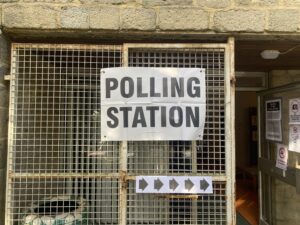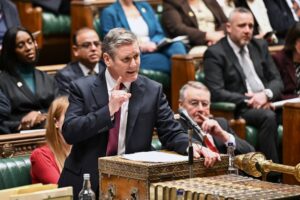15 minutes with… Liam Hannaway, chief executive of Newry, Mourne and Down Council
 Liam Hannaway is chief executive of Newry, Mourne and Down Council, which includes a large border area with southern Ireland. He talks to New Start about the impact of Brexit on jobs and local economies.
Liam Hannaway is chief executive of Newry, Mourne and Down Council, which includes a large border area with southern Ireland. He talks to New Start about the impact of Brexit on jobs and local economies.
——————————————————
Has there been any impact on the region so far from the vote for Brexit?
There is obviously a real fear over what Brexit means. The border is almost invisible now – we don’t see it – but Brexit will change that.
Initial reaction to the referendum impacted exchange rates and thus export trade and retail, particularly due to a favourable exchange rate from shoppers coming from Ireland. Given the location of Newry, this resulted in a strong period of trading for retail around Christmas.
The challenges however are more long term and difficult to anticipate. One thing that has become apparent is the interdependence across a range of sectors of the border economies both north and south.
There are risks in sectors such as agri-food, building materials and chemicals in border areas, where cross border trade is of importance. While the southern Irish market is of more importance to the Northern Ireland economy as a whole than the northern market is to the Irish one, the important issue is how critical north/south (and east/west) trade is for smaller and indigenous firms. This trade is crucial to the economies on either side of the border. And how important these markets are for any policy of increasing the number of exporters by starting firms along an exporting pathway.
What are the concerns around the loss of EU funds?
There is an exposure to serious risk for several sectors in NI from the withdrawal from EU funding, particularly the community and voluntary sector, farming, local government, and universities.
Smaller NI farmers and fishermen have concerns about funding as well as issues around migration and labour supply.
A lot of funding has been invested in this area since the peace process through EU Programmes like Peace, Interreg, Rural Development, Investing for Jobs & Growth and ERDF / ESF.
Councils in particular have been able to implement a range of programmes and initiatives in their own districts and on a cross border basis that have delivered significantly to local development, from supporting businesses to funding the community and voluntary sector.
There is still a great deal of uncertainty and it is very difficult for a single local authority to develop an action plan of mitigation. We, on behalf of border councils both north and south have commissioned Ulster University to carry out research on this matter. They have outlined the high level impacts and are currently carrying out more in depth analysis on these key issues. Over the next few weeks the councils will be considering these findings and developing action plans to tackle the issues highlighted. We will lobby government around the issues that will be impacted by Brexit to ensure these are considered in the negotiations moving forward.
You’re mid-way through a community planning process. What are the key outcomes for the area?
A draft version of the community plan was agreed by the Community Planning Partnership and published for public consultation on the 9 November 2016. Consultation will close this week. The plan identified five strategic outcomes for the district. These outcomes are the quality of life conditions that we want to collectively achieve for the community in Newry, Mourne and Down.
The five outcomes are:
- All people get a good start in life and fulfil their lifelong potential
- All people enjoy good health and wellbeing
- All people benefit from prosperous communities
- All people benefit from a clean, quality and sustainable environment
- All people live in respectful, safe and vibrant communities
Supporting these five outcomes are twenty associated indicators that will assess whether we are collectively making progress towards their achievement.
Councils in Northern Ireland were due to get regeneration powers transferred to them, but in the end the Northern Ireland executive retained the powers. Do you think councils should have powers over regeneration?
There are opposing positions between the two political parties about what the focus of regeneration should be. The DUP wants to build factories and create economic growth while Sinn Fein wants to focus more on tackling social disadvantage. There’s the issue of how many of the big developments in Belfast city centre have helped unemployment in Belfast. It will be interesting to debate that conflict between the two approaches. Should regeneration be all about jobs or can jobs and social progression be matched? That is the key question.















